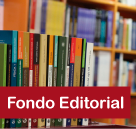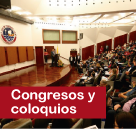65119 results
Recent Submissions
Una revisión integral del escenario energético del Perú: Avanzando en el acceso a la energía, la sostenibilidad y las implicaciones políticas
(Pontificia Universidad Católica del Perú, 2024-10-17) Colina-Calvo, Aaron Omar
Peru is in the race to eliminate poverty, inequality and environmental pollution according to the Sustainable Development Goals (SDGs) by 2030; however, the country faces significant challenges in the energy sector, with limited access to electricity and a heavy dependence on imported wood and fuels. This study explores the Peruvian energy context, focusing on an integrative model based on policies, emissions, challenges and opportunities to ensure the availability of resources and a sustainable framework for development through the evaluation of indicators and impacts within the energy sector. Our findings show that energy consumption in Peru depends on diesel, natural gas, and wood. Despite the country's efforts to advance renewable sources of energy and their potential, their contribution is approximately 5%. In this regard, sustainability policies towards 2030 have been adopted by promoting various initiatives, such as installing off-grid photovoltaic panels, BonoGas tickets or energy efficiency measures. However, the lack of political, economic, social and institutional support for emerging technologies slows down progress according to the proposed model.
Conflictos entre la autodeterminación informativa y la segmentación de perfiles a través de la publicidad programática online en el Perú
(Pontificia Universidad Católica del Perú, 2024-11-19) Sosa Huapaya, Alex
The purpose of this paper is to analyze the effects on the right to informational self-determination that can arise due to the use of online behavioral programmatic advertising as a tool for customer profiling and segmentation. In this research, the dogmatic method is used in order to analyze programmatic advertising regarding freedom of information protected in the Peruvian constitution, the rules that regulate its effects and pronouncements from the National Personal Data Authority, Indecopi, as well as European legislation. Thus, it aims to conclude if Peruvian regulations are appropriate to establish reasonable limits to this advertising strategy.
Desnaturalización de los procedimientos concursales: pagos de créditos concursales fuera de concurso
(Pontificia Universidad Católica del Perú, 2024-11-19) Barboza Flores, Juan Ramón
This article addresses the problem noted in the Peruvian Bankruptcy Law: the bankruptcy authority has been unable to neutralize payments of bankruptcy credits made outside the rules of bankruptcy. We are faced with the need for debtors to continue with business activity, to generate greater wealth and not increase the crisis they are going through, while we are faced with the possible denaturalization of the bankruptcy procedures. To address this problem, the author will propose the implementation of a regime of action that allows the balance between the need for payments and the bankruptcy procedure.
Los principios reparadores de la imposición forzosa en los planes de reestructuración y la libre competencia
(Pontificia Universidad Católica del Perú, 2024-11-19) Sanjuán y Muñoz, Enrique
This paper analyzes the rules and principles applicable to restructuring plans from the double perspective of the plans that are imposed through the CCCD (Cross-Class Crawn-Down) rule and those that can be considered consensual insofar as they do not involve an interclass affectation within such plans. It also analyzes the possibility of establishing a system that allows a control of these rules either ex officio or at the request of a party and the effectiveness that can be achieved with one, the other or mixed systems. A defective control or lack of control of these could affect, in the analyzed area, free competition and therefore unduly favor some over others, both in a situation of business crisis and restructuring as well as those that are not in such a situation.
Gobernanza y Reglamento de Inteligencia Artificial desde la primera óptica de OpenAI
(Pontificia Universidad Católica del Perú, 2024-11-19) Fierro Rodríguez, Diego
The European Union Artificial Intelligence Act, set to come into force in August 2024, establishes a comprehensive regulatory framework for artificial intelligence in Europe, focusing on safety and trust. This legislation categorizes Artificial Intelligence systems by risk level, imposing specific requirements for each category, particularly for high-risk systems and unacceptable practices. The Act bans certain Artificial Intelligence practices and mandates rigorous obligations for high-risk Artificial Intelligence systems. Providers and deployers of Artificial Intelligence systems must adhere to these requirements, and the Act’s extraterritorial reach affects organizations outside the EU. Preparing for compliance involves classifying Artificial Intelligence systems and consulting with legal experts.












